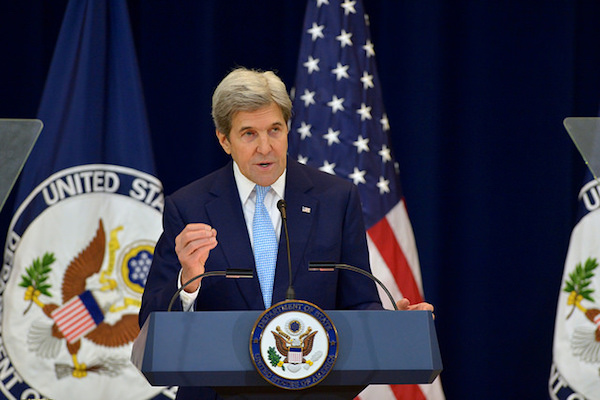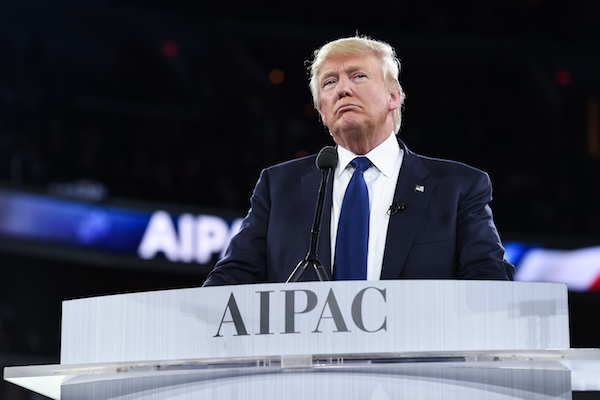John Kerry’s speech this week clearly and rationally explained why the status quo will not enable Israel to maintain its Jewish and democratic character. Are Israelis paying attention?
By Elie Podeh and Nimrod Goren

Throughout 2016, analysts were wondering what – if at all – will be President Obama’s final move regarding the Israeli-Palestinian conflict. The options discussed included a presidential speech (like the Cairo speech in 2009), updating the Clinton parameters of 2000, and the advancement of a resolution at the UN Security Council. Eventually, all answers were somewhat right: UN Security Council Resolution 2334 was not initiated by the U.S., but it was definitely encouraged by the American administration. Obama himself did not deliver a speech, but his Secretary of State, John Kerry, did, conveying the frustration and disappointment of the administration from both sides, and especially from Israel’s settlement policy.
The Kerry speech introduced parameters for the resolution of the Israeli-Palestinian conflict. They did not differ much from the Clinton Parameters, and were more ambiguous and concise. Still, it was a much-needed move in light of the regional changes that took place since 2000, and of issues which gained traction since (such as Israel’s request that Palestinians recognize it as a ‘Jewish state’). The updated parameters provide Israelis – public and politicians alike – more clarity regarding the two-state solution and the steps needed in order to get there. They also generate new momentum by enabling the discussion on an end-game agreement to be based on a recent document, which is part of a set of international moves to advance conflict resolution, and not on a plan devised sixteen years ago.
The Trump effect
A key difference between the Kerry parameters and those of Clinton is the reference made by Kerry to the Arab Peace Initiative (which was not yet published in 2000) and to regional ramifications of Israeli-Palestinian peace. Kerry highlighted the unique opportunity that Israel is currently facing – an opportunity to establish normal ties with Arab countries, and to even launch a joint security framework. Kerry stressed that the fulfillment of this opportunity is clearly linked to progress towards Israeli-Palestinian peace, contrasting recent claims by Netanyahu that normalization between Israel and Arab countries can precede Israeli-Palestinian peace. In his speech, Kerry tried to convince Israelis that peace will bring them concrete regional benefits. He focused on relations with the Arab world and on chances for enhanced security, but he could also have mentioned the EU’s offer for a Special Privileged Partnership with Israel and the future Palestinian state, as another incentive for peace.
Kerry refrained from addressing a major change that took place since the Clinton parameters were issued – the split between the West Bank and the Gaza Strip following the Hamas takeover of Gaza. The Palestinian divide is a major obstacle on the road for a two-state solution, and is one that the international community tends to avoid due to the sensitivity of dealing with Hamas. It is worth remembering that because of this obstacle, the negotiations between Olmert and Abbas in 2007-8 were aimed to reach a “shelf-agreement” only; one that will be implementable only after the restoration of Palestinian unity. While the Quartet report of July 2016 focused on this thorny issue, Kerry decided to skip it altogether.

Paradoxically, it was Trump’s victory and his positions on the Israeli-Palestinian issue that may have increased Obama’s motivation to make a final move. The UN Security Council resolution and the Kerry speech leave a legacy for Trump to deal with, but they also provide clear guidelines for future American administrations and for other countries that want to contribute to Israeli-Palestinian peacemaking. These steps demonstrated the continuity in American policy since 1967 regarding the occupied territories and Jerusalem.
Despite efforts along the years to mask and downplay differences between Israel and the U.S. on these issues, the American position – of Republican and Democratic administrations alike – has remained remarkably the same. A different policy by the Trump administration, if such will actually be taken, will be the exception. One can only wonder why hasn’t the Obama administration introduced its clear-cut positions earlier, during a time that still allowed the international community to act on them.
Looking in the mirror
The Kerry speech put a mirror in front of the Israeli government and society. Kerry clearly and rationally explained why the continuation of the status quo will not enable Israel to maintain its Jewish and democratic character in the long run. The ongoing occupation and the expansion of settlements makes the two-state solution gradually less feasible, and may lead to an irreversible situation. Those in the Israeli Right, who are ideologically committed to the settlements, do not have a reasonable answer to this dilemma, except for their wishful thinking that the Palestinians will somehow disappear or move to Jordan. The renowned Palestinian scholar Edward Said defined the role of intellectuals as “speaking truth to power.” In our case, it was the opposite. The power Kerry spoke explained the unsolvable contradiction between the occupation and Israel’s Jewish and democratic nature.
Netanyahu and his government responded to the American move with unprecedented bashing of an acting American administration. Netanyahu is looking forward to Trump’s inauguration, expecting a much more sympathetic approach by the next president. However, while American positions may change, the international consensus regarding the Palestinian issue is not likely to erode. This was demonstrated at the UN Security Council, and will be demonstrated again at the upcoming international conference in Paris. The Israeli government’s enthusiasm of Trump’s victory, should be replaced with genuine concern for Israel’s global standing, and for a change of policy that will help Israel regain the international legitimacy it is currently losing.
While American and international actions are important, they alone will not change facts on the ground and resolve the conflict. Eventually, Israelis and Palestinians themselves will have to take the lead. For this to happen, a courageous and pro-peace leadership is needed, as well as a strong civil society that challenges policies that jeopardize the two-state solution and lead Israel to increased isolation.
Prof. Elie Podeh is a Board Member at Mitvim – The Israeli Institute for Regional Foreign Policies, and teaches Middle Eastern Studies at the Hebrew University of Jerusalem. Dr. Nimrod Goren is the Head of the Mitvim Institute. This article was first published in Hebrew on Local Call. Read it here.
